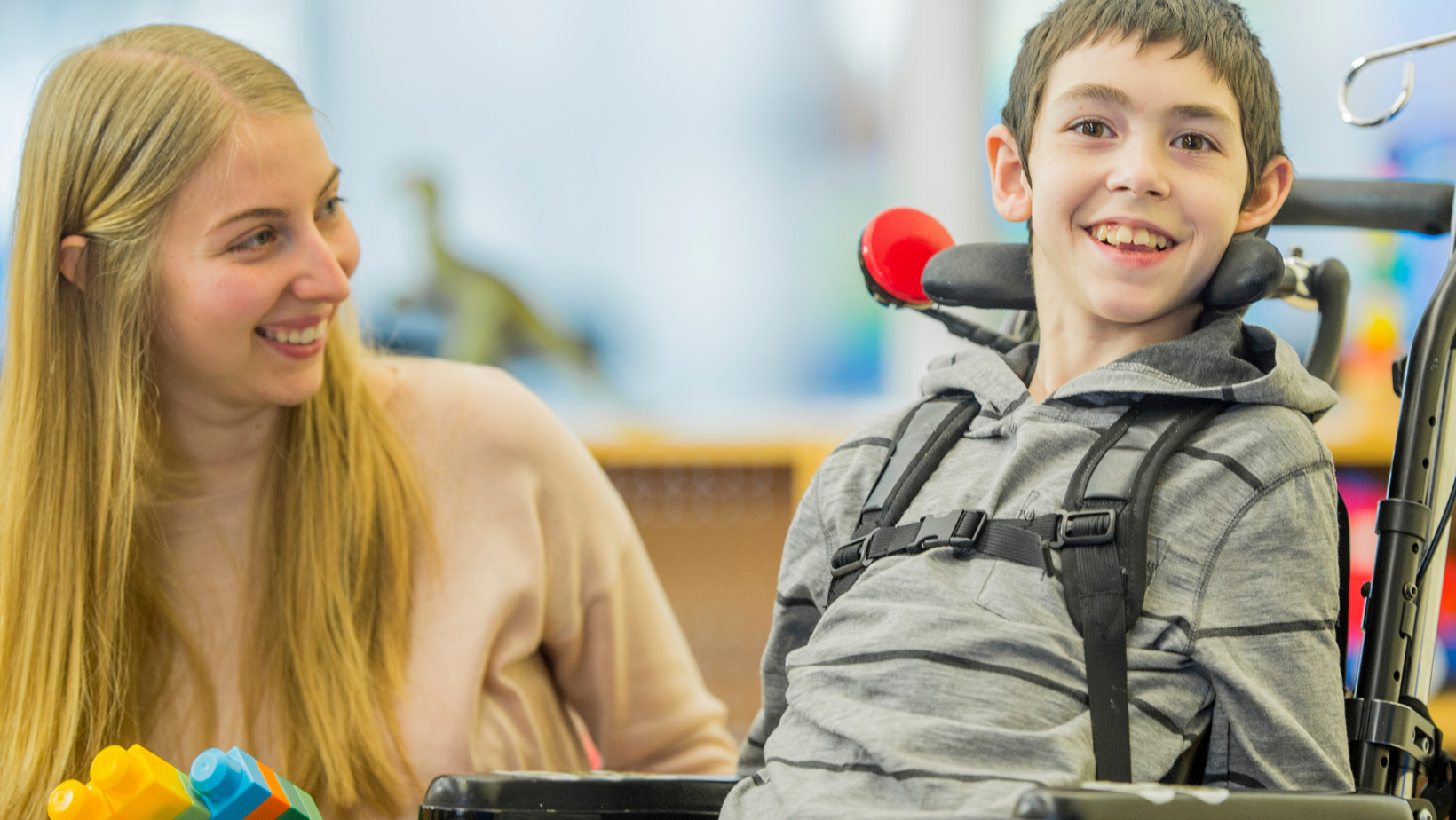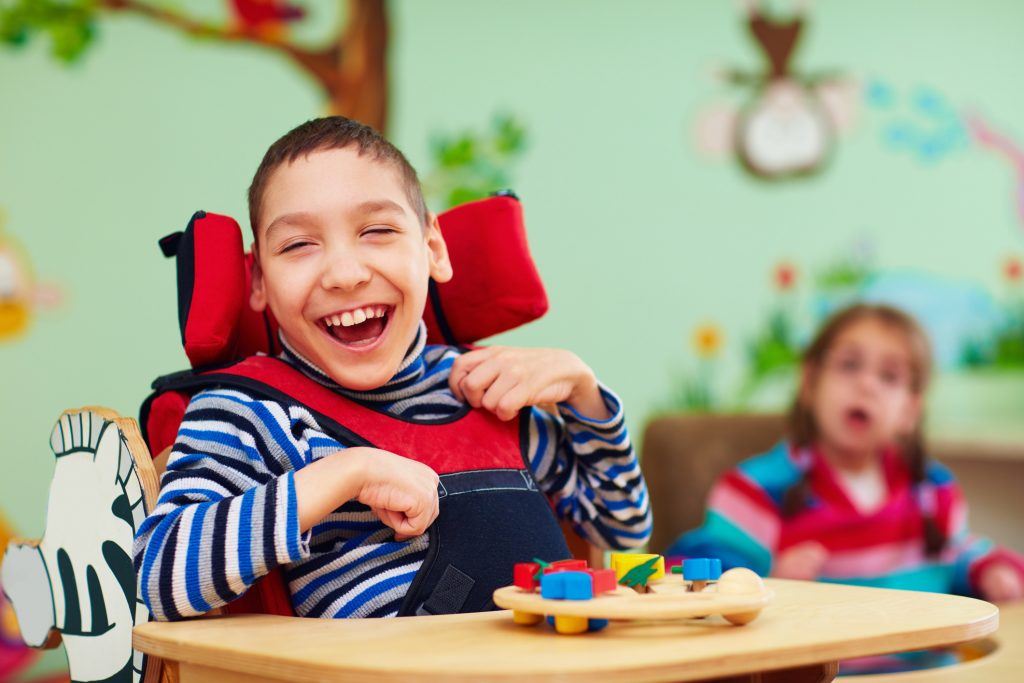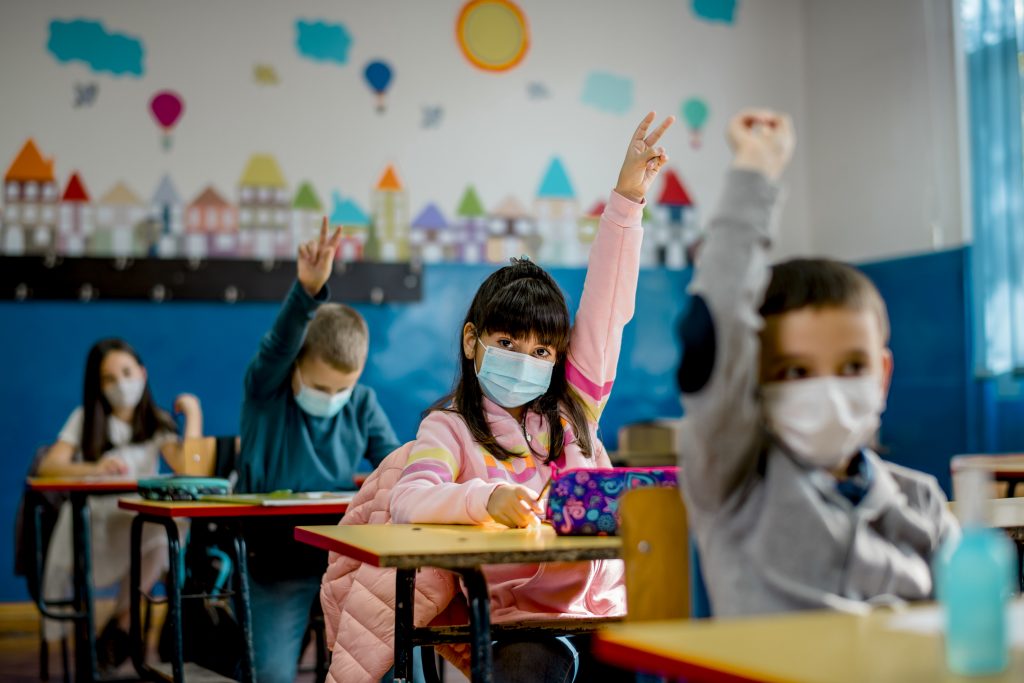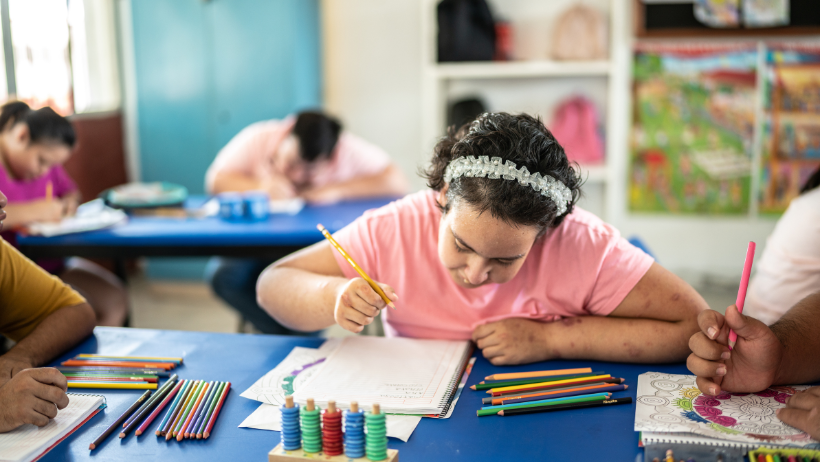BLOG Disability Awareness in Action

Did you know that October is “Disability Awareness Month”? It was news to me- a special education teacher, and cousin to a person with Autism. So, as I was given this information on the third week of October, it occurred to me that I’d pretty much missed my opportunity to spread this awareness.
The more I pondered the “spreading awareness” part, the more I wondered whose job it is to educate others about individuals with disabilities.
Then it hit me. My students- who each have one or multiple disabilities- are the perfect people to educate others on what a disability is … so we got to work.
Our school is the largest in our county. The general education students at my school have more exposure to the special needs population than any other school in our county as we also have 1 Autism classroom, 1 self-contained special education classroom, and a Community Developmental School Program comprised of 7 self-contained classrooms for students who have severe and profound disabilities. Mine is one of those. I have 10 beautiful students who are each considered to have intensive needs relating to his or her disability, and my classroom has 1st through 4th grade students with a wide range of disabilities- Autism, cerebral palsy, traumatic brain injury, and intellectual delay.

My administrators were on board right away with my idea to collaborate with regular education teachers about giving their students a little bit more context about these special education students that they pass by in the halls each day and to also give my students (verbal or not) opportunities to speak for themselves.
The e-mail thread blew up when I asked teachers to invite us into their classrooms for a little Q&A session over the next 2 weeks before the end of October.
The first classroom we visited was a resource classroom that had 6 students who were pulled for special education services out of their regular classroom setting. What a beautiful place to start.
I didn’t know what was going to happen as I went into these different rooms, but I didn’t expect to cry immediately. After I shared a little about each of the 3 students that came on this visit and how instruction might look a little different in our classroom than theirs, we opened it up for questions or comments. One little girl raised her hand. She said, “I can make a connection. I use a wheelchair, too.”
As the days went by, I couldn’t decide which questions or comments were my favorite from class to class. My students were amazing. They showed off. They expressed themselves. They smiled along as I shared or helped them to communicate with devices. We danced together. We laughed together- several times. We pointed out similarities, and we learned more about our differences.

Here are some of the questions and comments that touched my heart, made me laugh, or even had me wondering what the answer could possibly be.
[4th grade class] Q: Can dogs get Autism? A: I literally have no idea.
[1st/2nd grade class] Q: Do your students think the same as we do? A: I don’t know, but we laugh at the same things a lot of the time. They notice things that I don’t notice a lot of the time. But just like you and I think differently, I think it’s the same from person to person, disability or not.
[kindergarten class] Q: Is he in a wheelchair because he is hurt? A: No, he has cerebral palsy which affects his ability to stand and walk.
[4th grade class] Q: Does his Autism give him so much energy? A: (from that student’s ABA therapist who came with us) Yes!
[3rd grade class] Q: Were they born with a disability? A: *T* was born with cerebral palsy, and *J* was diagnosed with Autism when he was about 2 years old. Q: Can someone get a disability later in life? A: Yes, I have students who have traumatic brain injuries which were a result of something major that changed their brain and how they function. There are a lot of examples of disabilities that can occur later in life or not at birth and others that are part of a person’s make-up when they are born or happen at birth.
[3rd grade class] Q: Why did you choose your job? A: Because it’s never boring, and we have a lot of fun in our room. Plus, almost every night I can laugh about something that happened during the day, and I love to laugh. Comment: I thought I was the funny guy in this class!
*My student is sitting on the floor recording a weird message into my voice output device, making the other students laugh.*
The amount of hands that were raised to identify similarities was one of my favorite parts of the whole experience.
(Student) loves to build with legos. “Does anyone else like legos?” *Hands raised all over the room*
(Student) loves to dance to the cupid shuffle. “Do y’all like the cupid shuffle?” *Hands go up. Kids bop comes on, and dancing commences.*
Gen. ed. teacher asks students: Would any of you like to get to know these students more by organizing some games outside together or maybe visiting their class sometime?
*EVERY HAND IN THE ROOM SHOT UP*
It was such an eye-opening experience. We talked about what to do when one of our students might be having a meltdown in the hallway. We talked about how to address our students as we pass each other. Due to COVID, while we are wearing masks, a smile won’t always be the best greeting, but a thumbs up or a wave would be so kind. When I tell you, my students were waved to and given thumbs up every day since the first class visit, not to mention how many students were addressed by name because they left that much of an impression.
This will not be the last time we have these conversations at our school, but it was a really incredible first time. Now that we know that Disability Awareness Month is technically October, we have a great excuse to educate others who are unaware based on lack of exposure to people with disabilities but let’s not save it for October. As the family members, friends, and teachers of those with disabilities, let’s not get frustrated with people who simply don’t know. Let’s teach them. Let’s give our loved one who has a disability opportunities to teach them. If there is a lack of tolerance or understanding beyond that, we continue to advocate and protect, but spreading awareness falls on us who already know what an incredible experience it can be to share.
Related Articles

Writing a Resume: Where to Start When you’re on the hunt for a job, the best place to start is creating a resume! If you’ve never created a resume before, […]

St. Patrick’s Day is a holiday that is enjoyed by many, with its festive decorations, traditional foods, and colorful celebrations. However, for children with sensory sensitivities, the bright colors, loud […]

Arion Care Blog | August 2023 As summer ends and the 2023-2024 school year begins, Arion Care steps forward to provide an array of at-home and center-based Applied Behavior Analysis […]
 English/Español: (480) 722-1300
English/Español: (480) 722-1300




